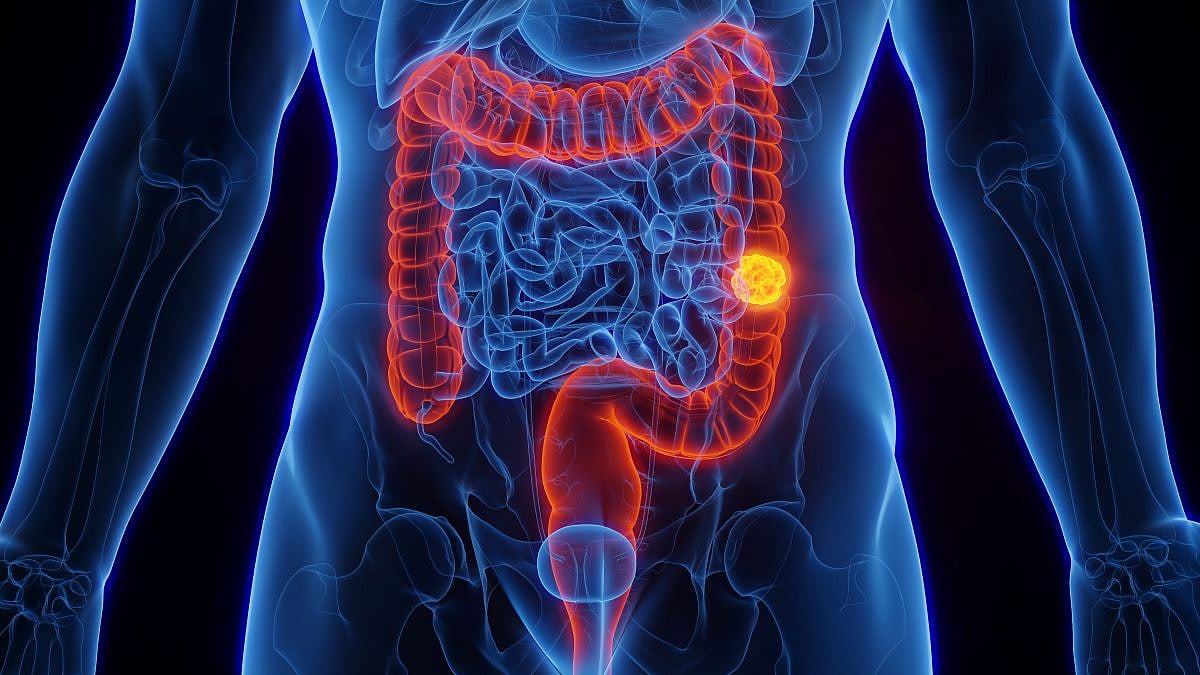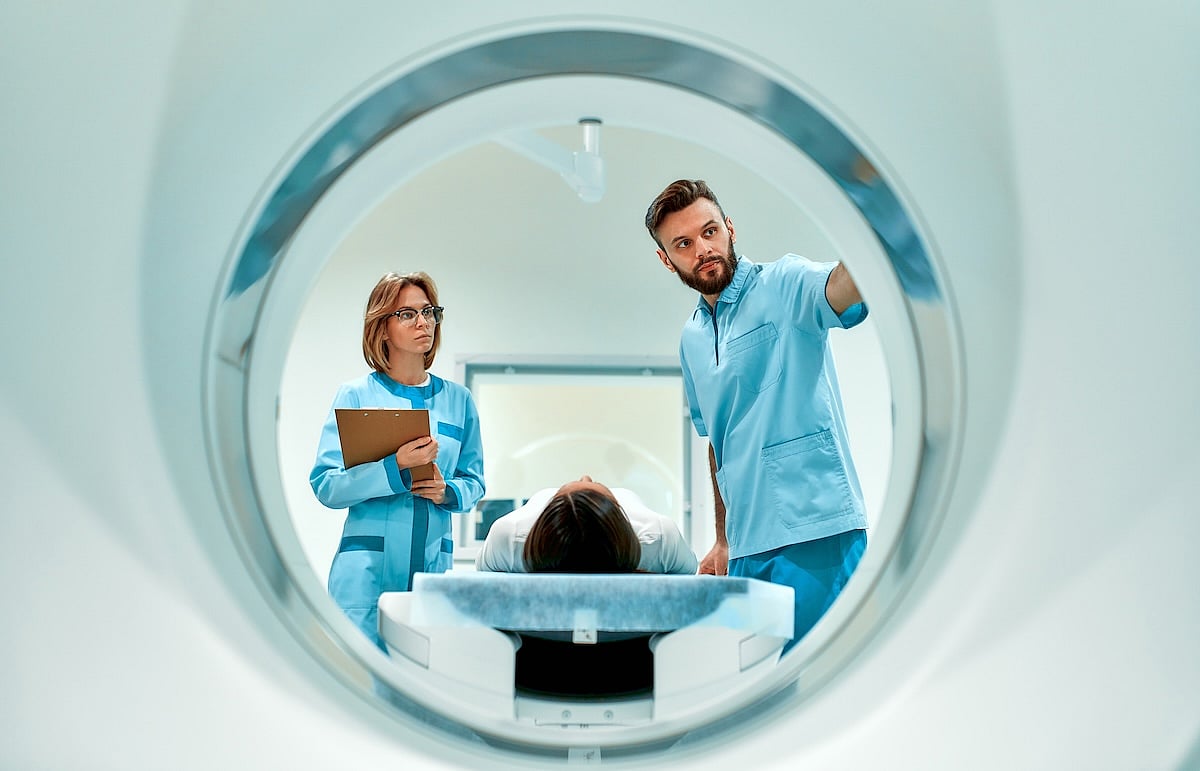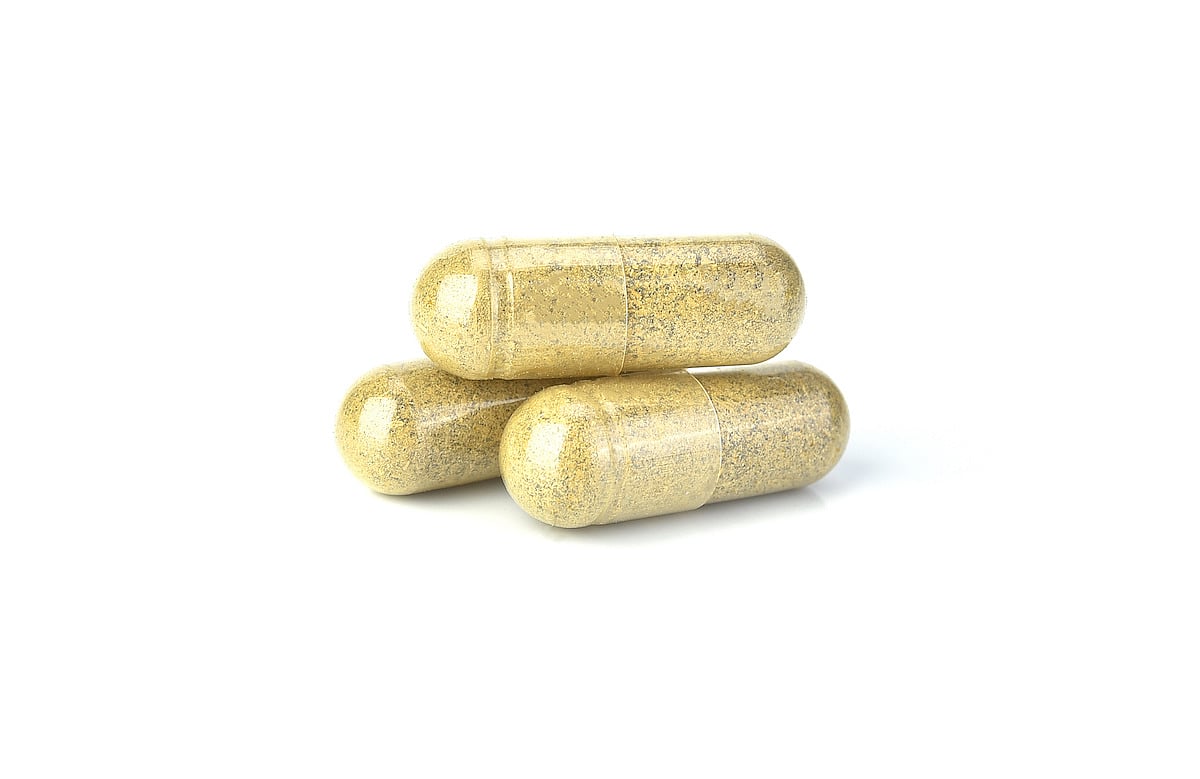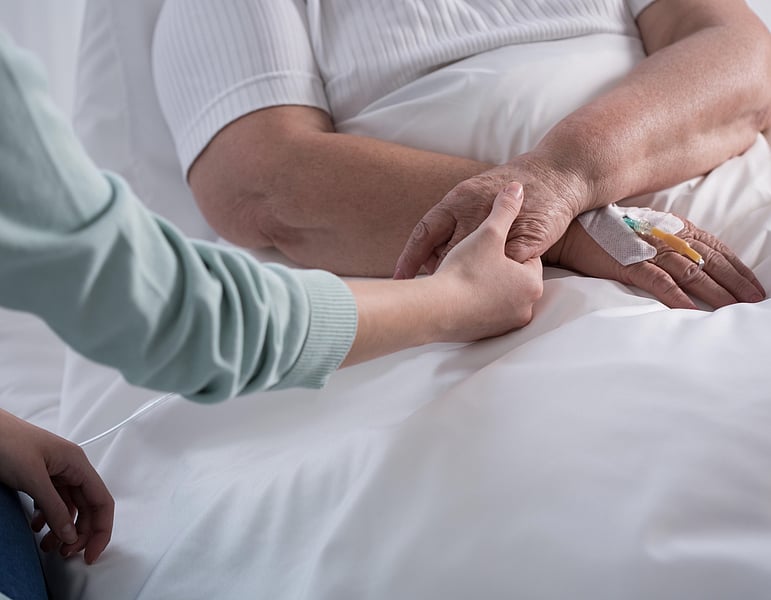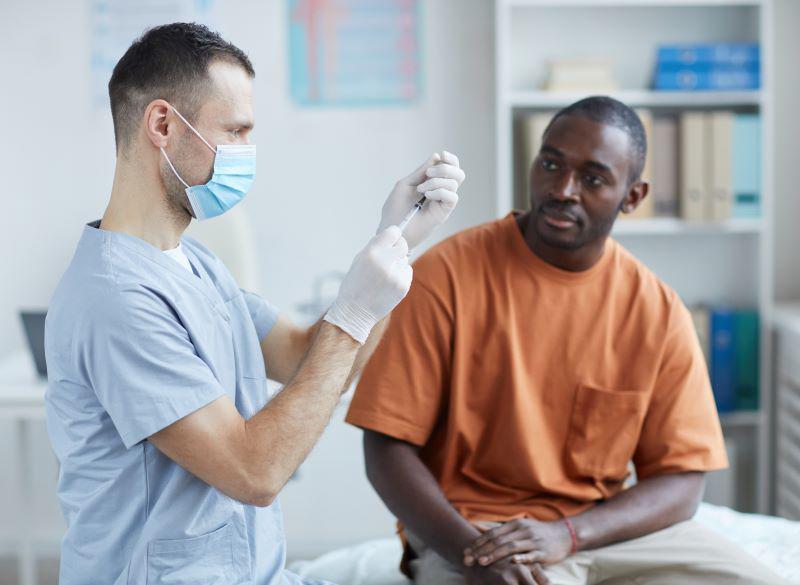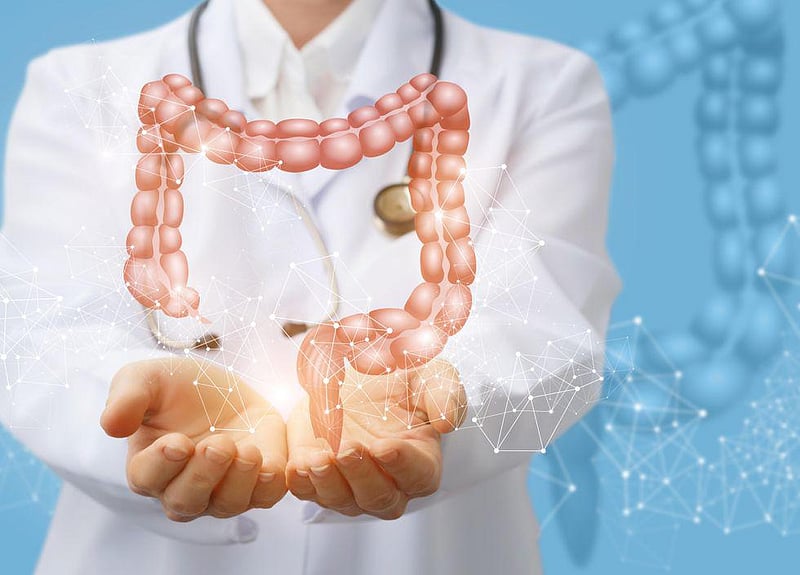Get Healthy!
Results for search "Cancer: Rectal".
30 May
GLP-1 Weight Loss Drugs May Lower the Risk for 14 Obesity-Related Cancers
A new study finds women taking GLP-1 Receptor agonists were significantly less likely to develop obesity-related cancers.
24 Mar
Colon Cancer is on the Rise in Young Adults. What You Need to Know.
HealthDay talks with Dr. Jennifer Davids, Chief of Colon and Rectal Surgery at Boston Medical Center.
Health News Results - 22
Hemorrhoids are a common condition that affects about half of all people by age fifty.
Although hemorrhoids are usually harmless, some worry that they may be a sign of cancer. While certain symptoms of hemorrhoids, colorectal cancer, and
Rectal bleeding could be a powerful early warning sign of colon cancer among younger adults, a new study says.
Such bleeding increased more than eightfold the odds of a colon cancer diagnosis among people younger than 50,
Popular GLP-1 weight loss drugs like Ozempic and Zepbound can help reduce a woman’s risk for as many as 14 cancers associated with obesity, a new study says.
People taking a GLP-1 drug had a 7% lower risk of developing an obesity-related canc...
- HealthDay Reporter
- Dennis Thompson
- |
- May 28, 2025
- |
- Full Page
Some rectal cancer patients might be spared surgery and the lifelong need for a colostomy bag if they undergo MRI screening, a new study finds.
The scans might accurately predict which patients have a higher odds for cancer recurrence and require surgery plus chemotherapy, and which can forgo surgery and opt for a "watch-and-wait" strategy instead.
“After undergoing chemothera...
- HealthDay Reporter
- Ernie Mundell
- |
- October 23, 2024
- |
- Full Page
Giving chemo and radiation therapies before a surgery for rectal cancer can help eliminate the need for removal of the rectum altogether, a new Swedish study finds.
“If the tumor disappears completely during treatment, surgery is not required," said study lead author Bengt Glimelius, a profess...
- HealthDay Reporter
- Ernie Mundell
- |
- August 26, 2024
- |
- Full Page
An experimental drug based on ancient Chinese herbal medicine can help ease the toxic side effects of chemotherapy and radiation therapy in cancer patients, the results of a small new trial results suggest.
A small group of 24 patients experienced fewer GI side ...
- HealthDay Reporter
- Dennis Thompson
- |
- August 13, 2024
- |
- Full Page
Rectal cancer often involves surgeries that can lead to a debilitating loss of bowel function for patients.
However, new research suggests that a less aggressive approach to treating the disease has helped an increasing number of patients avoid these surgeries.
That can mean everything to patients' quality of life, explained study lead author
Radiation therapy might not be necessary in treating some forms of rectal cancer and lymphoma, sparing patients from the toxic treatment, a pair of new clinical trials shows.
One trial found that rectal cancer patients whose tumors shrink in response to chemotherapy can safely skip the radiation therapy that's normally provided prior to surgery, researchers reported at the American Societ...
- HealthDay Reporter
- Dennis Thompson
- |
- June 6, 2023
- |
- Full Page
Maintaining a healthy weight may be important for reducing the risk of gastrointestinal cancer, a new study suggests.
The research adds to the evidence that excess weight and weight increases in adulthood increase the risk for colon and other gastrointestinal (GI) cancers.
"In a time when obesity rates are rising globally and 70% of the U.S. population alone is considered overweig...
- HealthDay Reporter
- Cara Murez
- |
- May 12, 2023
- |
- Full Page
A small study delivers startling results on the power of a new immunotherapy treatment against rectal cancer: The drug triggered remission in all the patients who got it.
All of them had mismatch repair-deficient (MMRd) locally advanced rectal cancer and were given dostarlimab - an anti-PD-...
- HealthDay Reporter
- Robert Preidt
- |
- June 6, 2022
- |
- Full Page
Colon cancer rates are increasing for younger Americans, along with rates of obesity. Could slimming down reduce young people's risk for malignancy?
A new study suggests that even a small amount of weight loss may cut your odds for benign growths in the colon known as adenomas, or polyps. Left unchecked, these growths can lead to
- HealthDay Reporter
- Cara Murez
- |
- February 1, 2022
- |
- Full Page
Yet another study is chipping away at the idea that colon and rectal cancers are diseases of older age: In the past couple decades, Americans younger than 40 have shown the steepest rise in advanced cases of these cancers.
The research adds to evidence of a disturbing, and not yet completely understood, increase in early-onset
Most American adults don't know that alcohol boosts cancer risk, but a majority support steps to increase awareness of the link, a new nationwide survey shows.
""It is important that people are made fully aware of the potential harms of alcohol so that they may make informed decisions about alcohol consumption," said study author Kara Wiseman. She's an assistant professor of public health...
- HealthDay Reporter
- Robert Preidt
- |
- January 31, 2022
- |
- Full Page
Many cancer patients take dietary supplements in hopes of keeping their disease at bay, but British researchers say there's little evidence it will pay off.
In fact, they add, supplements may not only be ineffective, but harmful as well.
"We found 1 in 5 people who had been treated for cancer mistakenly thought that taking vitamins or other supplements would help reduce the ris...
- HealthDay Reporter
- Steven Reinberg
- |
- December 20, 2021
- |
- Full Page
The first wave of girls to receive the HPV vaccine are much less likely to contract or die from cervical cancer than women just a few years older, a new study reports.
Nearly all cases of cervical cancer are caused by human papillomavirus (HPV), for which a vaccine has been available since 2006.
Cervical cancer deaths and cases have fallen dramatically among 14- to 24-year-old women...
- HealthDay Reporter
- Dennis Thompson
- |
- November 30, 2021
- |
- Full Page
U.S. cancer clinical trial participants have become more diverse in makeup, but certain groups remain underrepresented, a new study finds.
It's important to have a wide range of participants in clinical trials, to find out if treatments are safe and effective for people with different characteristics, according to the National Cancer Institute (NCI), which has a number of initiatives to b...
- HealthDay Reporter
- Robert Preidt
- |
- November 30, 2021
- |
- Full Page
Younger patients with advanced colon cancer don't live longer than older patients, but it's unclear why, researchers say.
The authors of the new study said they were surprised by the findings, which come as colon cancer rates are on the rise among young Americans.
"As a group, younger patients are more physically active and have higher performance status and are better able to perfo...
- HealthDay Reporter
- Robert Preidt
- |
- October 28, 2021
- |
- Full Page
Black American women with low levels of vitamin D have higher odds of developing colon cancer, according to a new research that echoes previous findings in white women.
Researchers used a vitamin D prediction model for nearly 50,000 participants in the Black Women's Health Study and concluded that those with predicted levels in the bottom 25% had an estimated 40% higher risk of colon canc...
- HealthDay Reporter
- Robert Preidt
- |
- October 27, 2021
- |
- Full Page
There's good news for health-conscious sausage and bacon lovers.
A new study suggests the Japanese knotweed plant could be used to make healthier cured meats.
According to researchers, this fast-growing plant that invades gardens and buildings contains a chemical that could take the place of the preservative nitrite, which has been linked to cancer, in cured meats. That might not on...
- HealthDay Reporter
- Steven Reinberg
- |
- September 24, 2021
- |
- Full Page
Here's another reason to avoid unnecessary use of antibiotics: Long-term use of these medications could increase your risk of colon cancer, researchers say.
"While in many cases antibiotic therapy is necessary and saves lives, in the event of less serious ailments that can be expected to heal anyway, caution should be exercised. Above all to prevent bacteria from developing resistance but...
- HealthDay Reporter
- Robert Preidt
- |
- September 2, 2021
- |
- Full Page
Foods rich in vitamin D may help protect younger adults against colon cancer, researchers report.
While colon cancer is decreasing overall, cases among younger adults have been on the rise. The trends dovetail with a decline in vitamin D intake from foods such as fish, mushrooms, eggs and milk.
There is growing evidence of a link between vitamin D and risk of colon cancer death, but...
- HealthDay Reporter
- Robert Preidt
- |
- August 18, 2021
- |
- Full Page
Immunotherapy helped extend the lives of some patients with the most common type of advanced colon cancer, researchers report.
The new findings are important, they noted, because immunotherapy doesn't typically work against microsatellite stable (MSS) colon cancer. These patients have few treatment options once their disease no longer responds to chemotherapy.
This study included 95...
- HealthDay Reporter
- Robert Preidt
- |
- August 11, 2021
- |
- Full Page


